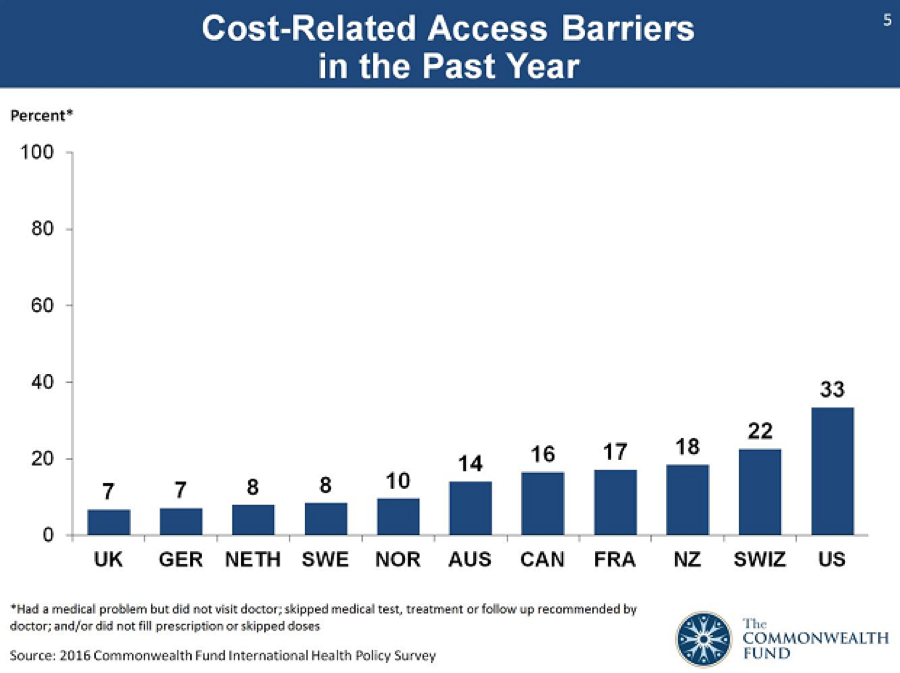President-elect Donald Trump’s promise to repeal and replace Obamacare has highlighted many of the problems with the law, including its failure to make health care affordable for many Americans.
A full third of American adults said that they went without recommended care last year, according to a new report from the Commonwealth Fund. That rate is down from 37 percent in 2013, but it’s still nearly triple the rate of consumers who can’t afford recommended care in other developed countries.
The Commonwealth survey compared experiences with health care services in 11 countries: Australia, Canada, France, Germany, the Netherlands, New Zealand, Norway, Sweden, Switzerland, the United Kingdom and the United States. Excluding the U.S., 13 percent of adults surveyed report problems accessing health care due to cost. Cost-related problems include not filling a prescription, not seeing a doctor when sick, or not getting recommended care.
The authors cite several reasons that affordability is a persistent issue in the United States, including the lack of true universal coverage (there are still 28 million uninsured Americans), the high cost of deductibles in the United States, and the high price of medical services here. The health care systems in each country are different with respect to access, wait times and available drugs and treatments, but even so, the U.S. system remains an outlier in many respects.
Related: Why Trump’s Idea of Amending Obamacare Simply Can’t Work

Still, the study authors aren’t convinced that Trump’s solution, which would bring “free market reforms” to the industry, would make health care more affordable for Americans.
Citing a separate Commonwealth analysis, they believe his plan could increase the number of uninsured by 20 million and increase the out-of-pocket costs of individual market enrollees by $1,500. “While it’s still too early to make predictions about where the Trump administration will take U.S. health care, closing the gap with other countries will require building on our progress, not reversing it,” they wrote in a blog post on the report.





